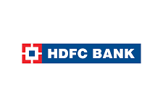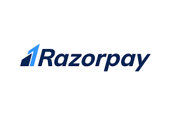
Trademark Opposition
Defend your brand by filing an opposition or responding effectively to one.
Our Experts will connect with you
Trademark Opposition
Trademark Opposition is a legal process where any person or entity can oppose the registration of a trademark after its advertisement in the trademark journal. The opposition must be filed within four months of the publication date by submitting a notice of opposition in Form TM-O along with the prescribed fees. The primary reason for opposition could be similarity to an existing trademark, likelihood of confusion, or violation of legal provisions.
Once the opposition is filed, the applicant must respond by filing a counterstatement within two months. If the applicant fails to submit a counterstatement, the trademark application will be considered abandoned. Both parties then have the opportunity to present evidence supporting their claims, including documents, witness statements, and expert opinions, which will be reviewed by the Trademark Registrar.
The final stage involves a hearing where both parties present their arguments before the Registrar. Based on the evidence and arguments submitted, the Registrar will decide whether to approve the trademark registration or reject the application. If either party is not satisfied with the decision, they can appeal to the Intellectual Property Appellate Board (IPAB) or the appropriate court.


To Know Trademark Opposition?
Filing a Trademark Opposition Notice
A trademark opposition can be filed by any third party who believes that the advertised trademark may cause confusion or infringe on their rights. The opposition must be submitted within four months of the mark's publication in the trademark journal using Form TM-O along with the required fees. Upon receiving the opposition, the Registrar will forward a copy to the applicant within three months for their response.










Response to Trademark Opposition Notice
Upon receiving a trademark opposition notice, the applicant must submit a counterstatement in Form TM-O within two months. This response should address the claims made by the opposing party, providing justifications and evidence to support the trademark application. Failure to file the counterstatement within the stipulated time may result in the abandonment of the application.
Submission of Evidence in Trademark Opposition
After the counterstatement is filed, the opposing party must submit evidence supporting their claims within two months. This evidence is crucial in proving why the trademark should not be registered. Copies of the submitted evidence must also be shared with the applicant to ensure a fair proceeding.
Final Decision in Trademark Opposition
After the hearing, the Registrar thoroughly examines the arguments and evidence presented by both parties. Based on the merits of the case, the Registrar may either approve the trademark for registration or reject the application. The final decision is officially communicated in writing to both parties, concluding the opposition proceedings.
Understanding Trademark Opposition
Trademark opposition is a legal challenge filed by a third party against the registration of a trademark after its advertisement in the trademark journal. Any individual or entity can oppose a trademark within four months of its publication if they believe it conflicts with their existing rights. The opposition process involves filing a notice, submitting evidence, and attending a hearing before the Trademark Registrar, who decides whether the trademark should be registered or rejected.
Procedure for Trademark Opposition
Simple Easy Process












Documentation
Filing Application
Deed Drafting
Verification
Uploading forms
Get Certificates
Documents Required


Application number
Hearing Notice (optional)
Affidavit/ Supportive Documents
Invoice Bills (if available)
Newspaper/ Magazine Ads (optional)
GST/ Company documents (If available)
What is Trademark Opposition in India?
Trademark opposition in India is a legal procedure where any third party can object to the registration of a trademark after it has been published in the Trademark Journal. The opposition must be filed within four months from the date of publication, citing valid reasons for the challenge, such as similarity with an existing trademark or potential for public confusion.
Is there any government fee?
Yes, there is a government fee for filing a trademark opposition under the Intellectual Property Rights of India. The fee for individuals, proprietors, and MSMEs is ₹2,700 per class when filed online and ₹3,000 per class when filed physically. For companies other than MSMEs or SSI, the fee is ₹5,400 per class online and ₹6,000 per class physically.
Who can file Trademark Opposition?
Any individual, company, or legal entity with valid reasons to challenge a trademark application can file an opposition. This includes businesses that own similar trademarks, competitors, or even the general public if they believe the trademark is misleading or non-distinctive. The opposition must be filed with the Trademark Registry within the prescribed time.


Our Authorised Partners


















Our Work Process












Want to work together and achieve high results? Let’s talk.
Simply fill out the contact form and submit it—our experts will reach out to you shortly.



Are you looking for professional consult?
Before you do something it is always good to consult with professionals rather than doing mistake.
Legal Advisors | Compliance Experts | Software Specialists
Just fill form, we will contact you!
Powered By MINDCREADZ PRIVATE LIMITED
1/3, 1st Cross, near Ragigudda metro station, Marenahalli, 2nd Phase, J. P. Nagar, Bengaluru, Karnataka 560078
Contacts


